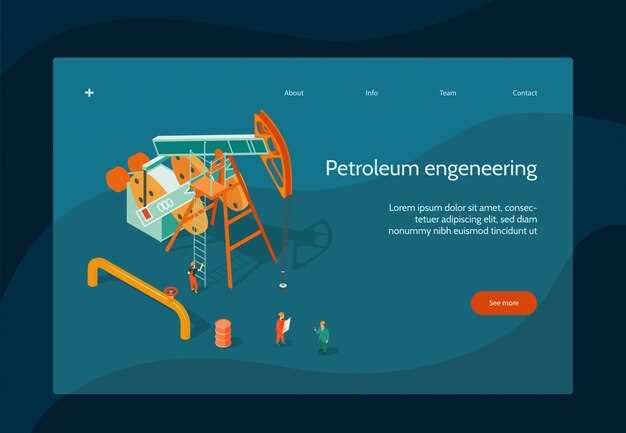
Improving the fuel economy of heavy diesel trucks is a crucial concern for fleet operators and owner-operators alike. The rising cost of diesel fuel has prompted the need for strategies that enhance efficiency and reduce overall consumption. With fuel expenses often representing a significant portion of operational costs, finding ways to optimize economy is not only economically viable but also environmentally beneficial.
Efficient management of diesel engines can lead to substantial benefits in economy. From regular maintenance to technological advancements, there are various methods and techniques available to maximize fuel efficiency. By understanding the factors that influence fuel consumption, fleet managers can implement effective practices to ensure their vehicles operate at peak efficiency, ultimately resulting in decreased costs and improved performance.
Furthermore, ensuring that heavy diesel trucks are equipped with the latest fuel-saving technologies can significantly enhance economy. Innovations such as aerodynamic modifications, advanced engine tuning, and the use of quality fuel additives can drastically reduce fuel usage. This article explores practical tips and strategies that can lead to improved fuel economy, making it essential reading for anyone looking to optimize their heavy diesel trucking operations.
Optimal Tire Pressure Maintenance for Better Mileage

Maintaining optimal tire pressure is a crucial aspect of enhancing fuel efficiency in heavy diesel trucks. Properly inflated tires reduce rolling resistance, which directly translates to fuel savings. When tire pressure is too low, it forces the engine to work harder to move the vehicle, leading to increased diesel fuel consumption.
Regular tire pressure checks should be part of a comprehensive maintenance schedule. Truck drivers should measure tire pressure at least once a week and before long trips. It’s important to refer to the manufacturer’s specifications for the correct pressure levels, as these can vary based on load and tire type.
Under-inflated tires not only lead to higher fuel expenses but can also cause uneven tire wear, potentially resulting in costly replacements. Conversely, over-inflated tires may lead to decreased traction and increased risk of blowouts, compromising safety. Therefore, maintaining the ideal balance is essential for both fuel economy and overall vehicle safety.
Additionally, external factors such as temperature changes can affect tire pressure. It’s prudent to check tire inflation more frequently during extreme weather conditions. By ensuring that tires are consistently maintained at their optimal pressure, truck operators can achieve significant savings on diesel fuel costs and extend the lifespan of their tires.
Impact of Regular Engine Maintenance on Diesel Consumption

Regular engine maintenance plays a crucial role in optimizing fuel economy in heavy diesel trucks. Ensuring that all engine components are functioning efficiently can significantly reduce diesel consumption. For instance, routine checks on fuel injectors, air filters, and oil levels help to maintain optimal engine performance. When these components are neglected, it can lead to incomplete combustion, which results in increased fuel usage.
Additionally, keeping the engine well-tuned aids in achieving better fuel economy. A well-maintained engine operates at the correct compression levels and promotes efficient fuel utilization. Regular servicing also addresses potential issues like worn-out spark plugs and fuel lines that can contribute to fuel wastage. By proactively managing these elements, truck operators can experience a noticeable decrease in diesel consumption and overall operational costs.
Furthermore, regular maintenance helps to identify problems before they escalate, such as leaks or mechanical failures. Addressing these issues early ensures that the engine runs smoothly, minimizing the chances of excessive fuel consumption caused by malfunctioning parts. In conclusion, consistent and thorough engine maintenance is vital for heavy diesel trucks, directly influencing diesel consumption and enhancing fuel economy.
Driving Techniques to Maximize Fuel Efficiency in Heavy Loads
Proper driving techniques play a crucial role in enhancing the economy of heavy diesel trucks. By adopting specific strategies, drivers can significantly improve fuel efficiency while transporting heavy loads. One of the most effective methods is maintaining a steady speed. Frequent acceleration and braking consume more fuel, so using cruise control on highways can help maintain a constant speed, thus optimizing fuel consumption.
Another technique involves anticipating traffic patterns. By reading the road ahead and anticipating stops or slowdowns, drivers can minimize unnecessary braking and acceleration. This smooth driving method enables the engine to operate more efficiently, thereby conserving diesel fuel.
Utilizing the engine’s torque range effectively is also essential. Heavy trucks are designed to operate most efficiently at certain RPMs. Drivers should aim to shift gears at lower RPMs to maximize fuel economy. Additionally, reducing idling time is crucial; turning off the engine when parked or waiting can save a significant amount of fuel over time.
Furthermore, proper load distribution is key to maintaining balance and stability, which can enhance fuel efficiency. Ensuring that the truck is loaded evenly prevents excessive drag and stabilizes the vehicle’s handling, allowing for smoother driving. Regular maintenance checks, such as ensuring tire pressure is at optimal levels, also contribute to better fuel economy, as under-inflated tires can lead to increased rolling resistance and fuel consumption.
Lastly, training drivers on fuel-efficient practices is vital. Awareness of how driving behavior influences diesel fuel economy can lead to more conscious efforts in managing speed, loading procedures, and vehicle maintenance. By implementing these techniques, heavy diesel truck operators can effectively enhance their fuel efficiency and reduce operational costs.




